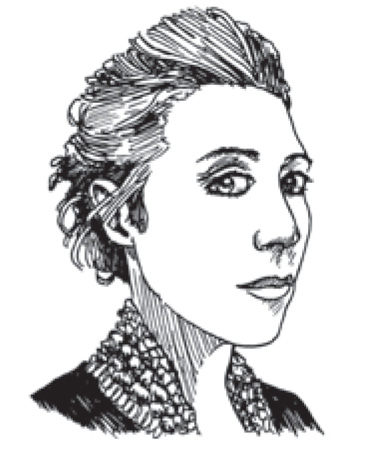The first thing I noticed about her was her leg—pumping, beating, propelling her music onstage at the Roundhouse in London. And that voice. One moment, tiny, held back, then, in a whiplash, fierce and exploding. Cascading. Mesmerizing. And those lyrics. Cutting, wrenching, funny.
A year later, gathered with her extended family, Boy George, and other friends onstage at Royal Albert Hall, singing French Canadian carols, Christmas blues, seasonal songs. A Carnegie Hall holiday tradition of her mother and aunt’s, Kate and Anna McGarrigle, brought to London. A concert she knew would be her mother’s last. Tending to a baby, tending to Kate, tending the music, she made Christmas ache and shimmer.
A third image. Southbank Centre, London. June 2010. Martha and her brother, Rufus, her aunt Anna, and producer Joe Boyd at their tribute concert to Kate, who had died just five months earlier. Martha leads a group of singers—Emmylou Harris, Jenni Muldaur, Teddy Thompson, a whole troupe, in a searing rendition of the last song her mother wrote.
What is it about this woman? You can’t take your eyes off of her when she’s onstage. She breaks your heart. And then she kicks out the chair and forces you to dance.
This conversation took place in New York in January, the morning after Martha Wainwright test-drove a handful of new songs at a tiny club on the Lower East Side. I met her in the lobby of the Royalton Hotel in Manhattan, where she was attending a meeting of the clan—Rufus, her aunts Anna and Janie McGarrigle and Teddy Wainwright, her husband (Brad Albetta), and their baby, Arcangelo.
—Davia Nelson of The Kitchen Sisters
I. “I’M CALLING TO INVITE HER INTO THIS NEW REALITY”
THE BELIEVER: I was wondering, watching you sing your new songs last night, what’s the first song you wrote?
MARTHA WAINWRIGHT: The first song I wrote was called “The Lexie Song.” Lexie is my half sister. I was eighteen, seventeen, somewhere in there; she was one or two. The subject of the song was meeting her for the first time and trying to explain to her the different members of the dysfunctional family that we live in, and the different mothers involved and strange aunts and difficult situations that were caused by divorce or separation, but that we all must try and love each other and that we are happy that she is here with us. So it was right away a song about a family member, which is what most of my first songs were about.
BLVR: What got you started writing?
MW: I had started watching Rufus write songs, and he was playing a weekly show at this small venue and had asked me to...
You have reached your article limit
Sign up for a digital subscription and continue reading all new issues, plus our entire archives, for just $1.50/month.
Already a subscriber? Sign in





